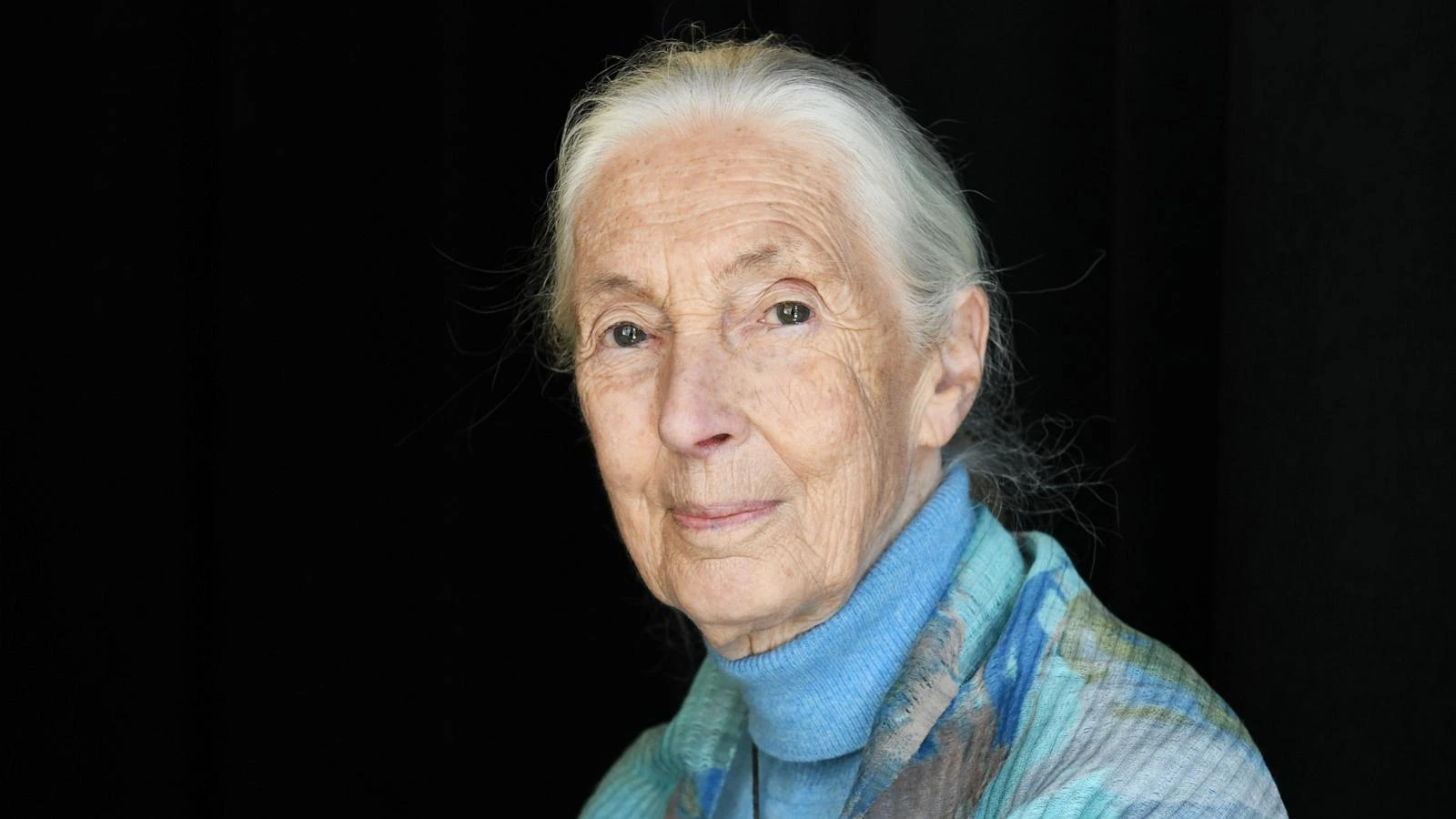LOS ANGELES — Jane Goodall, the world renowned British primatologist whose groundbreaking research on chimpanzees in East Africa reshaped the understanding of animal behavior and evolution, died Wednesday in Los Angeles. She was 91.
Her death was confirmed by the Jane Goodall Institute, which said she passed away while on a speaking tour. Goodall spent over six decades documenting the lives of wild chimpanzees in Tanzania, becoming one of the most influential scientists of the twentieth century.
Her discovery that chimpanzees use tools, display complex emotions, and engage in social rituals challenged the notion that such traits were uniquely human.
Born in London in 1934, Goodall traveled to what was then Tanganyika in 1960 under the mentorship of famed paleoanthropologist Louis Leakey.
Without a formal degree at the time, she began observing chimpanzees at Gombe Stream National Park, a remote forest reserve along Lake Tanganyika.
Her meticulous fieldwork revealed behaviors never before documented tool making, hunting, cooperation, and emotional bonding. In 1963, her feature in National Geographic introduced the world to chimps like David Greybeard and Flo, and to a young researcher living among them.
Jane Goodall’s work transformed our understanding of what it means to be human, said Dr. Michael Serle, a behavioral ecologist at Oxford University. “Her studies blurred the line between human and animal, forever altering evolutionary science.”
Over decades of observation, Goodall demonstrated that chimpanzees live in structured societies, form alliances, and experience grief. Her groundbreaking findings forced scientists to reconsider definitions of intelligence and culture.
Before Goodall, primatology was dominated by men and by numbers, said Dr. Sandra Park of the Smithsonian National Museum of Natural History. “She named her subjects, told their stories, and changed the way science communicates with the world.”
Louis Leakey famously remarked after her discovery of tool making chimps, “Now we must redefine ‘tool,’ redefine ‘man,’ or accept chimpanzees as humans.”
Goodall earned her Ph.D. from the University of Cambridge in 1965 and went on to publish more than 25 books and hundreds of scientific papers.
Beyond her research, Goodall became a leading advocate for conservation and environmental education. In 1977, she founded the Jane Goodall Institute, now active in more than 60 countries, promoting wildlife protection and community led conservation.
Her youth program, Roots & Shoots, inspires young people worldwide to take action on environmental issues.
Goodall’s global influence earned her numerous honors, including being named a Dame Commander of the Order of the British Empire in 2004 and a United Nations Messenger of Peace in 2002.
She gave voice to the voiceless, said Dr. Maria Gomez, executive director of the Jane Goodall Institute. “Her message of hope continues through every young person planting a tree or protecting an animal.”
From scientists to local communities, tributes poured in following the news that Jane Goodall dies at 91. Mama Jane was one of us, said Amisi Mwakalonge, a park ranger in Gombe. “She lived among our forests, respected our people, and helped us protect our home.”
Environmental activists praised her lifelong commitment to conservation. She used science not for fame, but for change, said Laila Hassan, a Nairobi based environmentalist. “Even at 91, she was still traveling, still speaking, still inspiring.”
The Jane Goodall Institute announced that her conservation and education programs will continue without interruption. Plans are underway to expand Roots & Shoots’ digital outreach and increase local reforestation projects in Africa and Asia.
Her archives, including field notes, video footage, and journals from Gombe, are preserved at the University of Minnesota for future research.
Her legacy is not just what she discovered, said Dr. Kamau Njoroge, a Tanzanian wildlife biologist. “It’s the generations she inspired to protect the planet.”
As Jane Goodall dies at 91, the world remembers not just a scientist but a storyteller, conservationist, and global icon whose curiosity reshaped human understanding.
Her life’s work stands as a testament to patience, empathy, and the enduring bond between species. Through her research, advocacy, and hope, Jane Goodall showed the world that every life human or animal has meaning.
